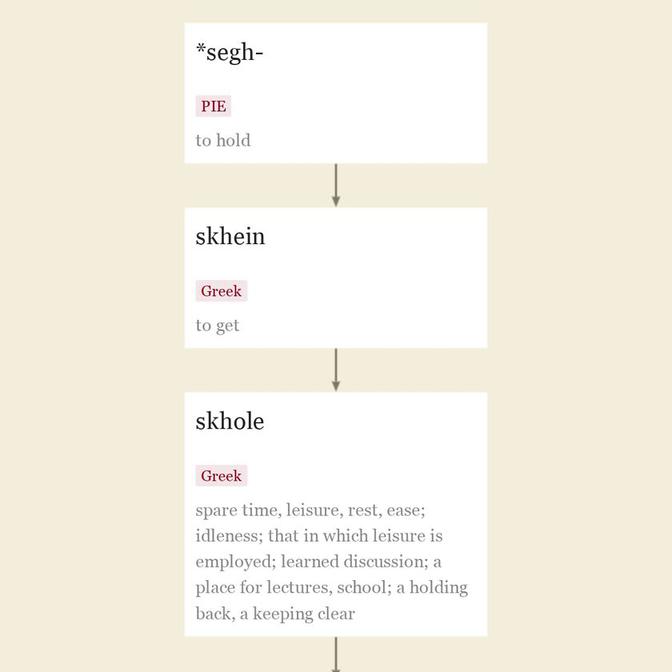scholastic (adj.)
1590s, "of or pertaining to Scholastic theologians" (Churchmen in the Middle Ages whose theology and philosophy was based on Church Fathers and Aristotle), from French scholastique (14c.), from Latin scholasticus "of a school," from Greek skholastikos "enjoying leisure; devoting one's leisure to learning," hence, as a noun, "a scholar," also in a bad sense, "a pedant; a simpleton," from skholē "leisure" (see school (n.1)). Greek scholastēs meant "one who lives at ease."
In English, the meaning "pertaining to or suited to schools or to school education" is from 1640s. As a noun in English from 1640s, "a Schoolman, an adherent of scholasticism, a Christian Aristotelian." Related: Scholastical (early 15c., scolasticalle, "relating to scholasticism;" 1530s in the "relating to a school" sense); scholastically.
It is remarkable that Aristotle, whom the schoolmen placed almost on a level with the Fathers, owes his position entirely to the early heretics ; that the introduction of his philosophy was at first invariably accompanied by an increase of heresy ; and that the Fathers, with scarcely an exception, unequivocally denounced it. [W.E.H. Lecky, "History of the Rise and Influence of the Spirit of Rationalism in Europe," 1866]
Trends of scholastic
updated on June 28, 2022
Dictionary entries near scholastic
schnozz
scholar
scholarch
scholarly
scholarship
scholastic
scholasticism
scholiast
school
school-book
schoolboy

